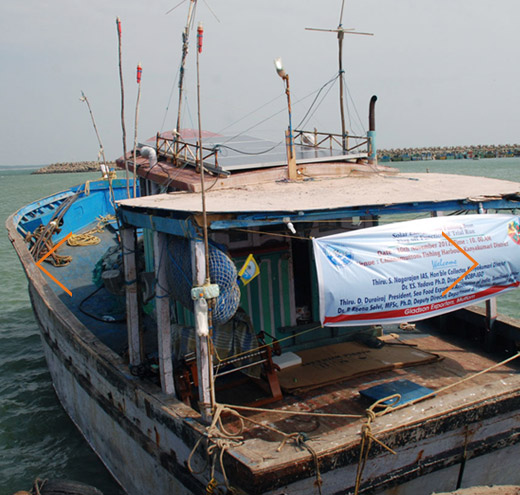
The IEEE Artisanal Deep Sea Fishers SIGHT group aims to to tackle projects that improve energy consumption and harm to deep sea artisanal fishers in Madras, India. Fishing at sea is a very dangerous occupation and safeguarding their life at sea does not receive sufficient attention from government or private companies. In 2015, the SIGHT group worked on a multi-phase project titled, “Technology Adoption for Reduction of Vulnerability in Fishing.” The project involves many stakeholders: engineers and engineering students, fishermen and fisher-women, fisheries experts, technocrats, social engineers and social scientists, Naval architects are involved, government officials are involved. Based on outcomes of the each components, they will be scaled in a phased approach. The project is currently in a foundations phase focusing on laying the groundwork for a sustainable project. The five components to the project are:
- Develop Safe Boat Design and Boat Building based on FAO Standards (SBDBB): Without a well built and safe boat, the lives of fishers who spend most says at sea are in danger.
- Develop a Fishing Vessel Monitoring and Control System (SPST): This component works to incorporate important safety measures, monitoring voyages, avoiding accidents, and saving the lives of the fishers.
- Solar Powered Self Transportation for Women Fish Vendor: Women play a major role in selling fish but they face a many issues along the way. One of the key problem is the transportation of fish.
- Solar Powered Small Ice Making Unit for Women Fish Vendors: Fish are a highly perishable and needs better preservation. The availability of fresh ice is a big problem so a small ice making unit will help them to address the issue.
- Infrastructure Assessment in Fishing Harbors and Fish Landing Centres: This will help avoid post harvest losses including physical and economical losses

